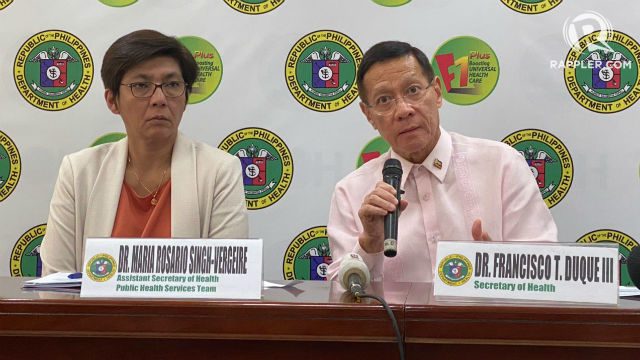SUMMARY
This is AI generated summarization, which may have errors. For context, always refer to the full article.

MANILA, Philippines – Aside from the battle being waged at the front lines, access to relevant and accurate data about COVID-19 are also key elements in the country’s fight against the dreaded disease.
Equally critical, said the University of the Philippines (UP) COVID-19 Pandemic Response Team, is “the speed and timeliness” of how this data is released.
In a policy note published on Tuesday, May 12, the UP response team highlighted the need for more open data and scientific cooperation as the country deals with the coronavirus pandemic.
The UP COVID-19 Pandemic Response Team is composed of some 200 professors, researchers, alumni and students from across the entire UP System. Their specializations include epidemiology, emergency medicine, public health, veterinary medicine, computer science, data science, disaster science, mathematics, statistics, economics, geography, public administration and governance, social work and community development, and political science.
“Aside from working with national and local government units, the UP response team has been collaborating with academics from the National University of Singapore, University of California Davis and University College London as well as local academic institutions,” said the group on the UP website.
Open data sources are important because its tells “us how we are doing in the fight against COVID-19.”
The UP experts added that now that the DOH and its partners have said that the country has flattened the curve, it was imperative to have “an independent corroboration—the hallmark of any scientific undertaking.” Limiting access to full government data only to select private sector groups, will be “to the detriment of public welfare and interest.”
The UP response team’s policy note said that “accurate and relevant data is a basic requirement in managing any situation that requires urgent and targeted response.” They observed data inconsistencies on the Department of Health’s (DOH) Data Drop, where information can be found.
According to the UP experts, there were differences in the numbers provided by DOH and LGU sources. (READ: [OPINION] An open letter to DOH’s communications team)
The group cited the case of Laguna wherein they found that on May 3, the DOH reported 7 deaths and 28 recoveries in Laguna, which was 22 deaths and 65 recoveries lesser than the provincial government’s numbers.
They also noted the inconsistencies of the gender column of the cases included in the raw data of the Data Drop.
“A quick comparison of the April 24 and April 25 data drops showed that 45 cases have changed sex from male to female or vice-versa; while 75 others had the data on age modified,” they said.
They added that this observation was on top of the 516 cases where the residence data was reclassified to another city.
Other “troubling anomalies” the team found were on the place of residence of the patients, and the numbers of deaths and recoveries.
“Eighteen cases no longer have data on residence in the April 25 update. On the same date, the recovery dates of two cases were either missing or changed. One patient who reportedly died on April 24 is no longer dead the following day.” the UP experts said.
During a Rappler Talk interview on Monday, May 11, UP Professor Jomar Rabajante of the UP COVID-19 Pandemic Team said that due to the inconsistencies and clumsy information from the DOH website, they resorted to finding other ways to get accurate data so they were not limited with the agency’s data.
Rabajante said that they partnered with LGUs for a real-time report of cases at the local level.
“We are finding other ways. Alam natin may limitations ang DOH data base, para magkaroon tayo ng magandang analysis,” Rabajante said.
(We are finding other ways because we know that the DOH database has limitations so we could have better analysis.)
While he found DOH data troubling, Rabajante said that “having data is better than none.”
“I understand their efforts pero sa pandemic na ito kailangan ng mabilisan. Mas mabilis dapat tayo sa virus,” Rabajante added. (I understand their efforts but in pandemic we have to be fast. We have to be faster than the virus.)
Transparency, accountability
While the team recognized that some information are protected by the data privacy law, there are important data that can already be “anonymized and made available to serve public interest” such onset of symptoms, exposure history, co-morbidities, and whether they were medical frontliners or not.
“The COVID-19 pandemic requires a science-based approach, and science cannot exist in a vacuum. Any scientific output would benefit from cross-validation from peers, and if findings do not converge, we might be standing on shaky grounds,” the experts said.
The UP response team called on other agencies and private institutions to share relevant data that can help the scientific community to make assessments on the situation of the pandemic in the country and to further the discussion to come up with peer-reviewed science.
“If we keep our information in silos, our collective efforts and perspective of the situation narrows and so do our chances to maintain and preserve public health and security.”
“Making all data sources open, while also being mindful of the same data privacy protocols that DOH is following, can further empower both official and unofficial stakeholders in the battle ahead,” they said. – Rappler.com
Add a comment
How does this make you feel?
There are no comments yet. Add your comment to start the conversation.